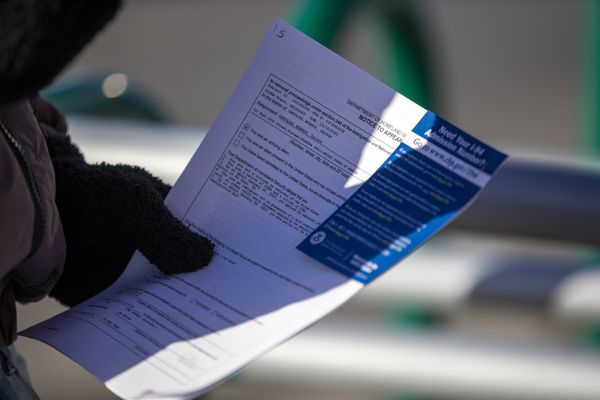
NSW voters might be forgiven for thinking the ethos of the Morrison government, thought dead and buried after May 2022, has been born again in Sydney via the Minns government.
Having handed control of gambling regulation to the “hospitality” industry, and control of taxation policy to Star Casino and the United Workers Union, the Minns government has picked up where Scott Morrison and friends left off in outsourcing policy development to big donors. Its increasingly impressive list of jobs for Labor mates, including giving department secretary positions to Labor figures ranked less suitable than other candidates, hasn’t yet reached Morrisonian proportions (or the Barilaro debacle under Dominic Perrottet) but represents a solid start.
Now NSW Labor is mulling its own version of Angus Taylor’s infamous “CoalKeeper” tax, in which households would have been slugged hundreds of dollars extra a year to prop up uneconomic coal-fired power plants, even when the electricity they generated wasn’t needed.
The Eraring coal-fired power plant owned by Origin Energy at Lake Macquarie is scheduled to close in 2025, as per Origin’s announcement at the start of January 2022, which enraged then-energy minister Taylor and prompted him to attempt to force fossil-fuel companies to keep coal-fired plants open. Taylor’s plan was thwarted by the states.
But for months now, it’s been rumoured Origin Energy would have to keep Eraring open for longer given the pace of investment in renewables, storage and, worst of all, transmission capacity, isn’t fast enough. This week a report by a Labor-connected consultant was leaked that reportedly recommended the government negotiate an extension of Eraring.
In fact, there’s no case for extending Eraring if the NSW government accelerated its approval of the large pipeline of investment in large-scale renewables and storage already committed, as Climate Energy Finance’s Tim Buckley showed in a report last month, as well as maintaining the current strong growth in rooftop solar.
But extending Eraring does come with a host of problems.
First, Eraring is so old and unreliable, keeping it going will cost hundreds of millions of dollars, either directly funded by NSW taxpayers or by a separate electricity charge on consumers — i.e. CoalKeeper: Redux. Propping up Eraring would ensure NSW would fail to meet its stated emissions reduction target of 50% by 2030, undermine the federal government’s target of 82% for renewable electricity by 2030, and send a signal to investors of a lack of commitment to the decarbonisation of the NSW power grid.
Indeed, propping open Eraring (along with Vales Point, an even more decrepit coal-fired power station that’s also the object of a push to keep open) would create a vicious circle in which the slow pace of approved investment in renewables is used to justify keeping open fossil-fuel-based power stations, which in turn undermines investment in renewables.
Eraring is also a killer. A 2018 study found that, of around 230 deaths a year (particularly of older people) caused by the particulate emissions of coal-fired power stations, nearly 90 deaths a year could be attributed to Eraring. Extending the plant for two years would mean an additional 180 wholly unnecessary deaths.
As Buckley noted, an extended Eraring would have to operate using coal sourced from short-term markets rather than long-term supply contracts, further pushing up prices. And like the other remaining coal-fired power stations in Australia, Eraring’s age and poor condition mean a high risk of unreliable supply.
The Minns government is thus faced with doing the hard but right thing — expediting the planning and approval of new renewables and storage capacity, and overriding entrenched NIMBY opposition to new transmission capacity — or doing the easy thing and propping up coal-fired power, which is what unions like the powerful ETU would prefer.
With taxpayers, and scores of victims of coal-fired power pollution, paying the price.







